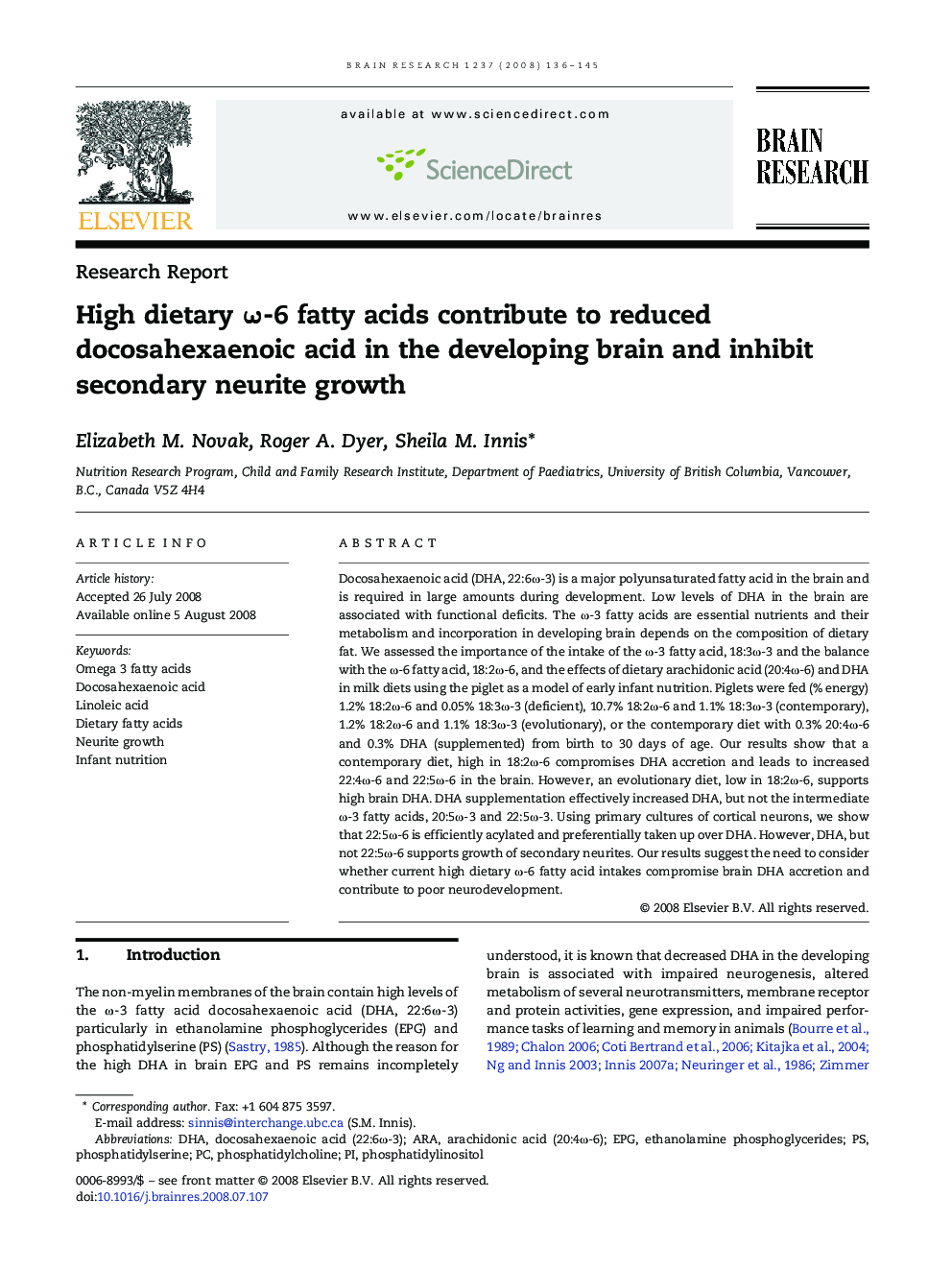| Article ID | Journal | Published Year | Pages | File Type |
|---|---|---|---|---|
| 4329263 | Brain Research | 2008 | 10 Pages |
Docosahexaenoic acid (DHA, 22:6ω-3) is a major polyunsaturated fatty acid in the brain and is required in large amounts during development. Low levels of DHA in the brain are associated with functional deficits. The ω-3 fatty acids are essential nutrients and their metabolism and incorporation in developing brain depends on the composition of dietary fat. We assessed the importance of the intake of the ω-3 fatty acid, 18:3ω-3 and the balance with the ω-6 fatty acid, 18:2ω-6, and the effects of dietary arachidonic acid (20:4ω-6) and DHA in milk diets using the piglet as a model of early infant nutrition. Piglets were fed (% energy) 1.2% 18:2ω-6 and 0.05% 18:3ω-3 (deficient), 10.7% 18:2ω-6 and 1.1% 18:3ω-3 (contemporary), 1.2% 18:2ω-6 and 1.1% 18:3ω-3 (evolutionary), or the contemporary diet with 0.3% 20:4ω-6 and 0.3% DHA (supplemented) from birth to 30 days of age. Our results show that a contemporary diet, high in 18:2ω-6 compromises DHA accretion and leads to increased 22:4ω-6 and 22:5ω-6 in the brain. However, an evolutionary diet, low in 18:2ω-6, supports high brain DHA. DHA supplementation effectively increased DHA, but not the intermediate ω-3 fatty acids, 20:5ω-3 and 22:5ω-3. Using primary cultures of cortical neurons, we show that 22:5ω-6 is efficiently acylated and preferentially taken up over DHA. However, DHA, but not 22:5ω-6 supports growth of secondary neurites. Our results suggest the need to consider whether current high dietary ω-6 fatty acid intakes compromise brain DHA accretion and contribute to poor neurodevelopment.
